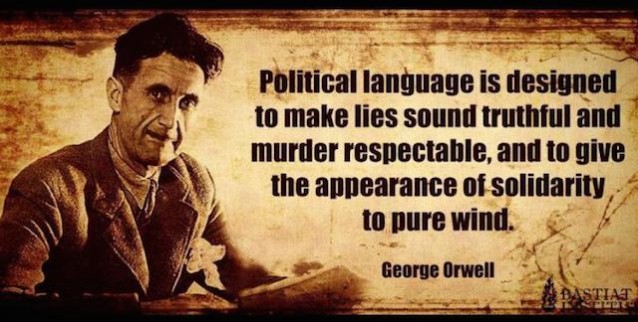
Last year, the Associated Press decided to remove the term illegal immigrant from its stylebook. The move was described by AP Executive Director Kathleen Carroll in a blog post as “part of a broader shift away from labeling people and towards labeling behavior — for example, referring to people ‘diagnosed with schizophrenia’ instead of ’schizophrenics.’” This policy change by the Associated Press, a group which has considerable influence since its stylebook is used by journalism schools and media outlets around the world can only be described as misguided, confused, and incorrect.
For one, under federal law, individuals who enter the United States illegally are classified under the law as illegal aliens. An alien who comes to this country legally would be classified as a legal permanent resident, a temporary resident, or a refugee; but to call those individuals who have come to the United States without permission anything other than an illegal alien is a slap in the face to those who have followed the law and are here with permission. Sadly, a movement has risen among illegal alien advocates to offer alternate terms of classification for those aliens who have broken the law in the hope that it will provide a smoke screen which will avoid the clear and undeniable fact that millions of people are illegally residing in the United States.
In fact, just recently, in a memo to his staff, news director Dan Jacobson of news station, NY 1 in New York, stated that “staff are encouraged to indicate that an individual is ‘here illegally,’ with ‘undocumented immigrant’ as a permissible fallback.”” Furthermore the memo goes on to state that “Undocumented is a little Orwellian—it’s not like people misplaced their documents or left them at home but I also understand the much more damaging impact of branding someone illegal, which many interpret is the case when we use the shorthand ‘’illegal immigrant.’” Jacobson continued, “We are talking about their legal status, but many viewers think that we are talking about the person themselves.”
Folks, the law is clear and we as a society must follow it. Equality under the law means applying it equally and justly. Illegal alien is a legal term for an individual that has violated a democratically enacted, constitutionally authorized, and ethically and morally justified immigration law. That person is classified as illegal because they have chosen to break the law and come to the United States without permission.
However, advocates of an alternate classification for those who broken immigration law argue that no human being is illegal and to classify someone as that is a human right violation. In fact, according to Hugo Balta, President of the National Association of Hispanic Journalists, “The i-word is a racial slur that shreds the human rights of 11 million undocumented immigrants living and working in this country. It feeds the ignorant perception that they are lower class and undeserving of being protected and treated fairly.” Mr. Balta, law is blind to color, appearance, or for that matter nationality. It is not banishment from the human race nor is it insulting or dehumanizing to use the terms illegal or alien. It is simply a fact that those who broke the law and have decided to come here illegally are illegal. It’s that simple.





5 Comments
By all responsibility and journalistic doctrine the Associated Press should be a defender of the language rather than a defender of any particular point of view. Language is after all, their prime tool in doing what they are supposed to do in society. Instead they have gone from the business of telling us what is happening in our world, to attempting to tell us how to interpret what is happening.
Rather than taking the difficult position of defending their purported position as impartial observors serving only the truth, they have caved in to false politically correct doctrine, and they are now all the more easily used. They once would have gladly gone to court to defend their correct & proper use of the language. Sadly, they have folded before the pressure of “political correctness.”
The AP can now put itself alongside the rest of the liberal media, largely too young, isolated, & inexperienced in life, to take on the task of deciding for the public exactly what any word means.
It is presumptuous. Even arrogant, though probably innocent. Problem is, innocence is what society doesn’t need in it’s journalism.
They should be leaving word definition to Webster and New Oxford, so we can all speak the same language.
“The ignorant perception that they are lower class and undeserving of being protected and treated fairly.” First of all, most illegals are lower class, almost half have less than a high school education. As far as being protected and treated fairly, what is fair about expecting US citizens to obey the law, but those from another country are apparently free to ignore the laws they don’t like. People like Mr. Balta are the first to claim discrimination, but the question to the Latin community becomes are you Latins first and Americans second. Because the appearance you give out seems to be that you’re owed something because you’re Latin.
owed to the ones that are abused…..I agree…………
Problem is, Leland, that journalists now appear to believe they are responsible to prevent all misinterpretation, save those they favor. They are not. They are responsible to convey the truth as best they can, using words according to their accepted definition. Those definitions are not found in anyone’s stylebook, but in our dictionaries. “Illegal” modifies “alien,” not “person,” as every 5th grader should know.
Folding under to those with an agenda doesn’t serve the public, but the agenda.
We can all look up the words “illegal” and “alien” without much trouble, so we don’t need to be instructed by journalists what they mean, or shoudn’t mean. Abandoning well-defined and proper words or mis-using words in an attempt to prevent misinterpretation of properly used language is beyond journalistic license.
If AP believed it was contributing to a problem of the public looking down on illegal aliens it was suffering immense self-importance. Otherwise, a disclaimer here and there could have easily allayed their fears. That would fit well into a stylebook, and would also reinforce journalistic values.
Plain talk is good for everyone.
Great Article FAIR
The Orwell book 1984 wasn’t about 1984, its really about 2014.